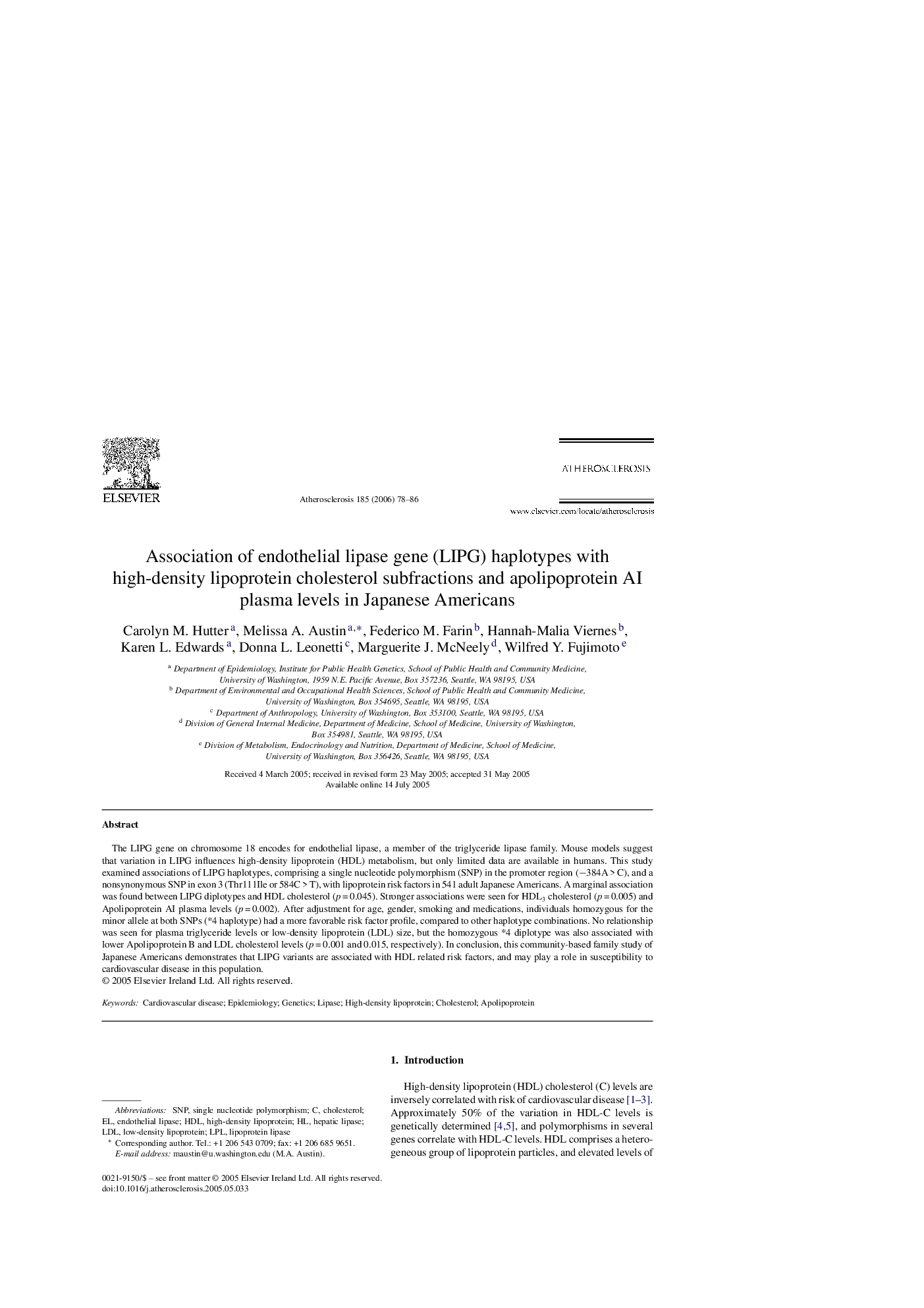| Article ID | Journal | Published Year | Pages | File Type |
|---|---|---|---|---|
| 2895403 | Atherosclerosis | 2006 | 9 Pages |
The LIPG gene on chromosome 18 encodes for endothelial lipase, a member of the triglyceride lipase family. Mouse models suggest that variation in LIPG influences high-density lipoprotein (HDL) metabolism, but only limited data are available in humans. This study examined associations of LIPG haplotypes, comprising a single nucleotide polymorphism (SNP) in the promoter region (−384A > C), and a nonsynonymous SNP in exon 3 (Thr111Ile or 584C > T), with lipoprotein risk factors in 541 adult Japanese Americans. A marginal association was found between LIPG diplotypes and HDL cholesterol (p = 0.045). Stronger associations were seen for HDL3 cholesterol (p = 0.005) and Apolipoprotein AI plasma levels (p = 0.002). After adjustment for age, gender, smoking and medications, individuals homozygous for the minor allele at both SNPs (*4 haplotype) had a more favorable risk factor profile, compared to other haplotype combinations. No relationship was seen for plasma triglyceride levels or low-density lipoprotein (LDL) size, but the homozygous *4 diplotype was also associated with lower Apolipoprotein B and LDL cholesterol levels (p = 0.001 and 0.015, respectively). In conclusion, this community-based family study of Japanese Americans demonstrates that LIPG variants are associated with HDL related risk factors, and may play a role in susceptibility to cardiovascular disease in this population.
